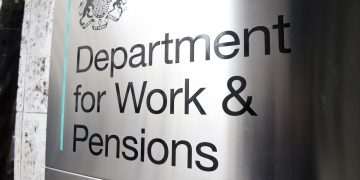Travel rules in Scotland have eased up today, making it easier for holidaymakers to catch a bit of early summer sunshine.
All fully vaccinated passengers arriving in Scotland will no longer be required to take any Covid tests under the changes to the rules.
Quarantine measures have also been dropped for unvaccinated and partially vaccinated people. They are also no longer required to take a day eight test, while the requirement to take one within two days of their arrival will remain in place.
The rules on filling out a passenger locator form and the wearing of face coverings in Scotland’s airports remains in place.

(Image: Getty Images)
When announcing the changes last month, Transport Secretary Michael Matheson said: “These measures will significantly open up international travel and were agreed on a UK wide basis.
“The measures will be extremely welcome for the Scottish tourism and aviation sectors, encouraging travel from our airports.
“While this is a positive step which will be welcomed by many we believe further surveillance measures will be necessary across all nations – as intelligence will help in terms of variants of concern. It was agreed further work to take this forward will be carried out over the coming weeks.”
This is expected to spark a surge in people seeking to book holidays abroad over the next few months.
Here are the current rules in place across the most popular holiday destinations, according to the Foreign, Commonwealth and Development Office (FCDO).
Did you know you can keep up to date with the latest news by signing up to our daily newsletter?
We send a morning and lunchtime newsletter covering the latest headlines every day.
We also send coronavirus updates at 5pm on weekdays, and a round up of the week’s must-read stories on Sunday afternoons.
Signing up is simple, easy and free.
You can pop your email address into the sign up box above, hit Subscribe and we’ll do the rest.
Alternatively, you can sign up and check out the rest of our newsletters here.
Spain

(Image: Getty Images/Collection Mix: Subjects RF)
Scots travellers must show proof that they have been fully vaccinated against Covid. If your second dose came more than 270 days prior to travelling to Spain, then you must show proof of your booster dose.
Unvaccinated or partially vaccinated people are not allowed to enter Spain under the current rules.
Children under 12 are not required to show proof of vaccination status.
All travellers must fill in a health control form and QR code generating after completion of this form must be shown at the border.
Passengers may be subject to additional tests, such as a temperature check, visual health assessment or testing on arrival.
You may also be contacted to take a test at any point up to 48 hours after your arrival in Spain.
Portugal

(Image: Getty Images)
All passengers are required to complete a passenger locator form prior to their travel to Portugal.
Fully vaccinated Scots will be able to enter the country without the need to test before travel. You must show proof of your vaccination status at the border – and will be asked for proof of your booster dose if your second dose came more than 270 days before arrival.
If you are not fully vaccinated, then you must show evidence of a negative PCR test, which should be taken no more than 72 hours before entry, or a lateral flow test, taken no more than 24 hours before arrival.
Tests must be carried out a trained healthcare professional as self-administered ones are deemed as “not acceptable”.
Greece

(Image: Getty Images/iStockphoto)
Scots must complete an online passenger locator form before heading over to Greece.
Travellers must show a valid vaccination certificate, which show that there must have been no more than nine months since the completion of your primary vaccination for Covid.
Vaccine rules apply for all passengers who are aged five years old and over.
Alternatively, you can also enter by showing a certificate of recovery from the virus.
Additionally, arrivals into Greece may be required to undergo a rapid Covid test on arrival.
Cyprus
All passengers must complete a Cyprus Flight Pass before travelling over to the country.
Scots must show evidence of a negative PCR test taken within 72 hours before departure or a rapid antigen test taken 24 hours before departure.
The testing rules apply regardless of vaccination status.
Malta
A passenger locator form must be filled out before travel to Malta, with the resulting QR code being shown to airline officials at the border.
All arrivals must show proof that they have been fully vaccinated to gain entry into the country.
If you are not a resident of Malta and you have not been fully vaccinated, then you will not be allowed to enter.
Children aged 5 to 11 can travel if they are accompanying their vaccinated parents or legal guardians. They must show evidence of a negative PCR test, dated within 72 hours before arrival. Children under five are not required to test.
France

(Image: Getty Images/iStockphoto)
Fully vaccinated passengers from the UK must show evidence of a negative PCR or antigen test taken within 48 hours before departure if aged 12 years and over.
They must also complete a ‘sworn statement’ which will self-certify that you are not suffering from symptoms associated with Covid and have not been in contact with any positive cases in the last fortnight.
People who are not full vaccinated against the virus will be required to self-isolate on arrival in France for 10 days.
They must also provide a negative PCR or antigen test, contact details before travel to France, a form to prove that the reason for travel is essential and the same ‘sworn statement’.
Children under 12 are exempt from rules on testing and vaccines, but must still complete a ‘sworn statement’.

















































